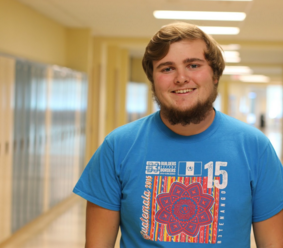On Thursday, April 24, an explosion occurred in Staples High School. A digital explosion of horrid proportions. Within an hour, Yik Yak had doubled, tripled, quadrupled in size.
I was on the later half of the discovery, finding out from a friend’s text after the lunch period had ended. I was confused at first, until I saw the anonymous posts that targeted certain people and groups.
I laughed.
I scrolled.
I showed posts to my friends.
I didn’t realize that the app was becoming a mine-field of vulgar, insulting, victimizing, and flat out stupid attacks.
Anonymity had taken over, and people’s nastiest selves were emerging.
Following Principal Dodig’s announcement, the app seemed to grow even larger during the last period of the day. As the clocked ticked closer to 2:15, more and more phones were connecting to what had become a messageboard for personal assaults.
Principal Dodig shut down the app on school Wi-Fi. Then, according to Fox News, who reported on a similar situation in Fairfield, Conn, “district officials asked Yik Yak to utilize its GPS technology to block access to the app within all of its campuses.”
Within a 1.5 mile radius of Staples, a message began to pop up on more and more screens, forbidding access to students because of the above actions. As I walked towards my baseball practice, I had my bag in one hand, and my phone in the other, refreshing the page to try and see what people had said.
I knew it was awful, but I couldn’t look away. Maybe it was to see if I had been mentioned, or maybe it was a similar kind of horror as a car crash.
I can only imagine what riding a bus must have been like, conversation reduced to a complete fixation on phones.
The following day, I did not go a single class period without hearing some form of discussion about Yik Yak. Teachers with young children were saddened, other teachers shocked about how purely nasty their students could be.
Days later, Yik Yak lies as a graveyard of nasty remarks, a reminder of how awful people can be when given full anonymity.















































